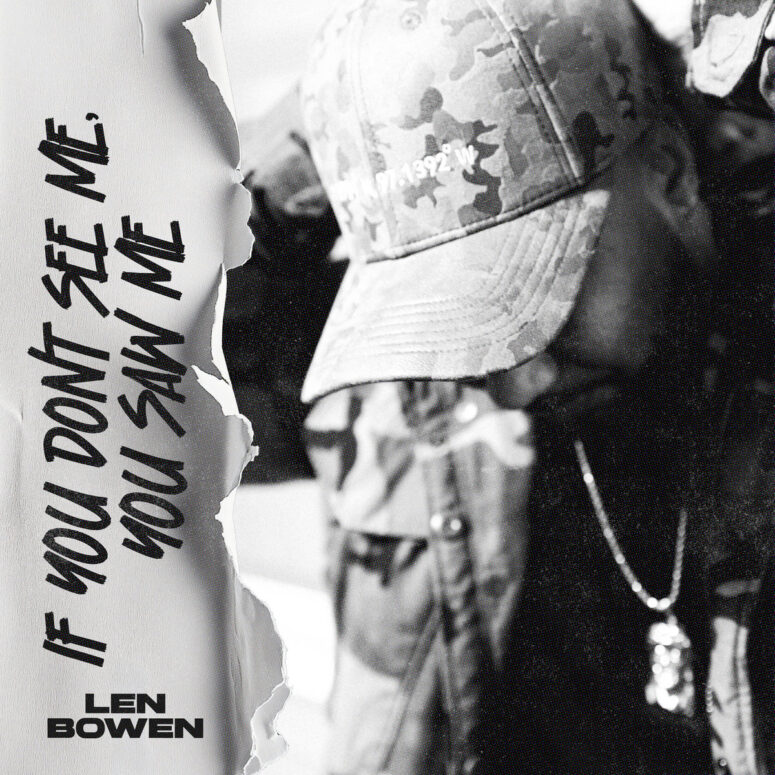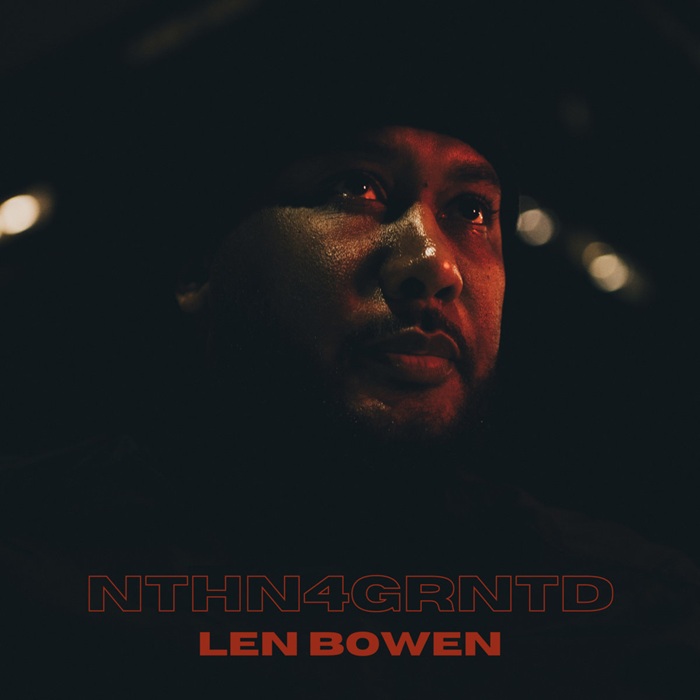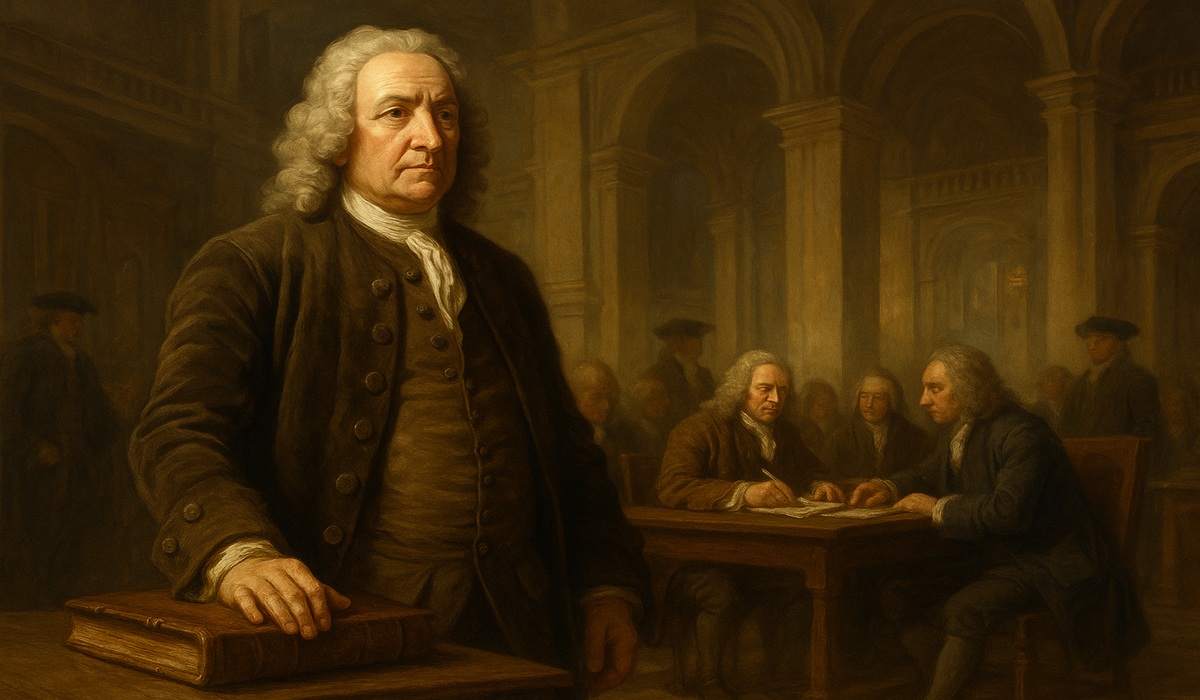Len Bowen: Winnipeg’s Definition of Hip-Hop Longevity
- TDS News
- Entertainment
- Trending News
- September 25, 2025

By Donovan Martin Sr, Editor in Chief
To talk about hip-hop in Winnipeg without mentioning Len Bowen would be like talking about New York rap without mentioning Nas. For more than three decades, Bowen has been a steady hand, a wordsmith, and a cultural anchor in a city where hip-hop has often had to fight for oxygen. In 2023, his album NTHN4GRNTD reminded the industry that his pen is as sharp as ever, and earlier this month, he doubled down with If You Don’t See Me, You Saw Me—a project that shows both his evolution and his refusal to compromise on substance. This is not just a review of a record. It’s a look at a story of persistence, craftsmanship, and a quiet defiance against fading into the background.
Bowen’s story begins in the 1990s, when the Winnipeg rap scene was still being stitched together by local pioneers and dreamers. Back then, you couldn’t go to a show without seeing Bowen on stage—steady, commanding, and different. He didn’t rely on shock value or profanity. His power came from storytelling, from a smooth delivery that carried weight without needing to shout. Long before artists like Lupe Fiasco popularized the art of the “conscious” flow, Bowen was already building verses layered with double and triple entendres. He cut his teeth as part of the trio that formed Shadez Ov Blac, with Chris Taylor and Emerson Brewster, a group that laid a foundation for future Winnipeg talent. Later, as the first artist signed to the indie label Blk Sun Snd, Bowen began carving out his solo identity. By 2010, he had stepped into the spotlight with Long Story Short (EP), a debut that announced his independence and sharpened his reputation as an MC who could both perform and pen timeless records.
To be an independent artist in Canada—especially outside of Toronto or Vancouver—is no easy feat. The spotlight doesn’t shine as brightly on Winnipeg, and that makes consistency not just admirable but almost miraculous. Bowen has released nine solo projects over the years, a catalogue that balances street sensibilities with thoughtful commentary. He has opened for some of the biggest names to ever touch Canadian and global hip-hop stages: Choclair, The Rascalz, Ludacris, T.I., The Game, Guru the Damaja, and more. Each time, he proved that Winnipeg had something to say, and he could stand shoulder to shoulder with internationally acclaimed acts.

But the reality of longevity is less glamorous. It’s hours of writing, rehearsing, recording, self-promotion, and dealing with the business side of music. Bowen has never shied away from this grind. As he once put it: “You can’t shortcut the process. If you believe in your voice, you put the work in, even when nobody’s watching.” That ethos—putting in the work—has kept him alive in an industry that has swallowed many of his peers.
Released in 2023, NTHN4GRNTD was more than an album—it was a statement. Critics praised it as one of his most cohesive and introspective works, a collection of songs that carried both grit and grace. The title itself was a meditation on his journey: nothing in his career has been handed to him. Every stage slot, every verse, every fan gained—he had to earn it. On this album, Bowen sharpened his focus on resilience and reflection. Tracks navigated themes of self-belief, struggle, and perseverance in a city and industry that can often feel indifferent. For listeners, NTHN4GRNTD was a reminder that hip-hop isn’t just about the new; it’s about the artists who have stayed true through decades of change.
And then came September’s drop, If You Don’t See Me, You Saw Me. The title alone captures the paradox of an underground legend—an artist who might not always be in the headlines, but whose presence is undeniable for anyone paying attention. The album features standouts like “Forward (Faawud)” and “Gotta Believe,” tracks that blend Bowen’s hallmark storytelling with motivational grit. These aren’t just songs for the sake of rhyming; they are carefully structured narratives, meant to inspire as much as they entertain. “Forward” pushes listeners to embrace growth and resilience, embodying Bowen’s career philosophy of persistence. Meanwhile, “Gotta Believe” operates as both a personal mantra and a challenge to fans—don’t just consume the music, live the message. Sonically, the project balances modern production with old-school respect. It’s polished but not overproduced, conscious yet accessible. In an era where hip-hop often leans on shock, Bowen still thrives on substance.

What makes Bowen’s career remarkable is not just the length but the relevance. Many artists from the 1990s faded into nostalgia acts or stopped recording altogether. Bowen stayed sharp. He adapted without losing his essence. That adaptability—paired with his discipline—is what makes him a pioneer. He’s part of the DNA of Winnipeg hip-hop. And yet, he doesn’t wear the title like a crown; he wears it like a responsibility. He understands that the younger generation is now carrying the torch, but his presence keeps the roots alive. He once said, “You can’t control how long people listen, but you can control how honest you are when you speak.” That honesty is why listeners, old and new, continue to find him.
Bowen’s journey is uniquely tied to Winnipeg, a city often overshadowed in Canada’s music narrative. But his story resonates far beyond Manitoba. It’s about any artist who refuses to let geography, industry politics, or shifting trends dictate their output. Hip-hop thrives on voices that refuse to be silenced, and Bowen’s is one of them. His catalog proves that artistry isn’t measured by hype cycles or chart placements—it’s measured by the ability to outlast, to inspire, and to stay true.
If You Don’t See Me, You Saw Me is more than just Len Bowen’s latest release—it’s another chapter in a story that started in Winnipeg basements and community stages in the 1990s and continues to this day. It’s proof that longevity isn’t just about surviving; it’s about evolving without compromise. In a scene where many have come and gone, Bowen remains. He is a pioneer, a craftsman, and a living blueprint for what it means to build a career on faith, discipline, and storytelling. For anyone new to Winnipeg hip-hop, start here. For longtime fans, this is a reminder: you don’t have to look to the coasts to find greatness. Sometimes, it’s been in your backyard the whole time.








